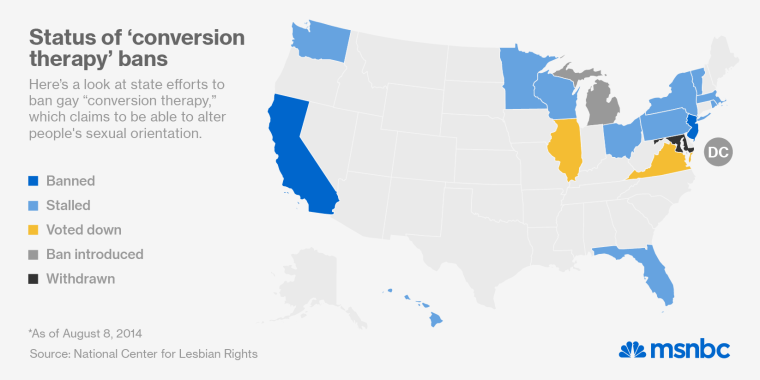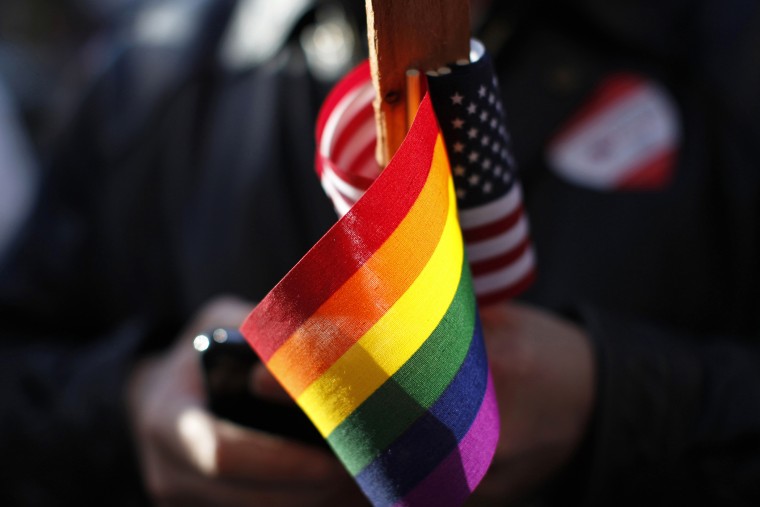Though home to historic advancements for LGBT equality in recent years, the United States is garnering some negative international attention over the practice of gay conversion therapy.
Three members of the United Nations Committee Against Torture (CAT) questioned State Department officials Wednesday about why 48 U.S. states still permit some form of “treatment” to turn gay youth straight, despite the fact that medical experts have deemed the practice psychologically damaging and ineffective. The questions -- asked by CAT representatives from Mauritius, Denmark and Nepal during the committee’s 53rd session in Geneva -- mark the first time the issue has been raised as a potential violation of the Convention against Torture and Other Cruel, Inhuman or Degrading Treatment or Punishment.
The American delegation made no mention of conversion therapy Thursday, choosing instead to respond to other issues upon which CAT will evaluate the U.S. in its compliance report later this month. But LGBT advocates called this week’s discussion a significant step.
“Yesterday, the U.N. Committee Against Torture made conversion therapy an issue in international human rights law. There’s no going back from that,” Samantha Ames, a campaign coordinator with the National Center for Lesbian Rights (NCLR), told msnbc. She testified before the committee Wednesday, along with Samuel Brinton, a conversion therapy survivor.
“Hearing CAT bring this issue forward is a moment I will never forget,” Brinton said in a statement. “Survivors generally feel that no one cares about the cruel, inhuman, and degrading treatment we suffered in conversion therapy. Somebody cares now. The committee just used its voice to bring this issue forward and we survivors are never going to be silenced again.”
The NCLR is spearheading a national effort, known as the #BornPerfect campaign, to end conversion therapy within the next five years. Though same-sex couples are now able to marry in 33 states, plus the District of Columbia, just two -- California and New Jersey -- ban conversion therapy among minors. Both the American Medical Association and the American Psychological Association have condemned the practice.
“The idea that homosexuality is a mental disorder or that the emergence of same-sex attraction and orientation among some adolescents is in anyway abnormal or unhealthy has no support among any mainstream health and mental health professional organizations,” states an American Psychological Association primer on sexual orientation and youth.
Still, conversion therapy continues on American soil. As CAT discussed the issue in Geneva this week, a video went viral back in the U.S. depicting a young man aggressively declaring he had been “delivered” from homosexuality. "I'm not gay no more,” shouted St. Louis resident Andrew Caldwell, 21, at the 107th Church of God in Christ Holy Convocation. “I don't like mens no more. I said I like women. Women, women, women, women! I said women! I'm not gay! I would not date a man! I would not carry a purse! I would not put on make-up! I will, I will love a women."
“A lot of people are surprised when they hear that as many as one in three LGBT people have been subjected to conversion therapy,” said Ames. “The reason that’s so high and we hear so little about it is because the survivors have been silenced by the trauma itself.”
A big part the #BornPerfect campaign focuses on empowering survivors to speak out, in addition to education, litigation and legislation. Though no one from the 24-member American delegation specifically mentioned conversion therapy Thursday, Ames said several U.S. officials came up to her privately and asked how they could help.
“I’m not expecting the U.S. delegation to respond because frankly, I don’t think they know what to say yet,” said Ames. “We have work to do, and I’m hoping that after this we can all work together.”

